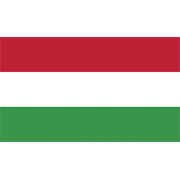Fiscal subject related
The pensioner food voucher is a paper-based payment instrument that can be used to buy cold food.
It has a unique serial number, watermark, and security features.
It is issued in denominations of 1,000, 2,000, 3,000, and 5,000 forints.
Merchants must accept it at face value but cannot exchange it for cash or give change when it is used.
An online cash register recognizes three main payment types:
- Cash
- Bank card
- Other means of payment
The pensioner food voucher must be recorded under “other means of payment” in receipts or simplified invoices for cold food sales.
Businesses can:
- Record the voucher under an existing “other payment” category (e.g., “voucher”), or
- Create a new category specifically called “pensioner food voucher.”
Although it’s not mandatory, creating a separate category is recommended because it helps with tracking and settlement of these vouchers more easily.
An e-cash register supports the following payment types:
- Cash
- Bank card
- SZÉP card
- Instant Payment System
- Other means of payment
For receipts or invoices issued for cold food, the value of the voucher must also be recorded as “other means of payment.” As with online cash registers, the operator may create a dedicated category name (e.g., “pensioner food voucher”) to record these transactions clearly
Other news from Hungary
NAV Issues Detailed Guidance on Licensing Procedures for E-Cash Registers and Customer Apps
 Hungary
Author: Tara Nedeljković
Hungary
Author: Tara Nedeljković
NAV has published a detailed Notice explaining how distributors must apply for and obtain permits to market e-cash registers and customer applications under Decree 8/2025. Let’s explore this further. Read more
Subscribe to get access to the latest news, documents, webinars and educations.
Already subscriber? Login


Hungarian HAV Published E-Cash Register Testing Details
 Hungary
Author: Tara Nedeljković
Hungary
Author: Tara Nedeljković
Hungary’s new e-cash register framework, based on the 8/2025 (III.31.) Ministry of Finance Regulation, introduces strict technical certification rules and NAV-supervised type testing to ensure secure digital receipt issuance and data transmission. Read more
Subscribe to get access to the latest news, documents, webinars and educations.
Already subscriber? Login


New Requirements for Publishing Visual and Audio Signals of E-Cash Registers in Hungary
 Hungary
Author: Tara Nedeljković
Hungary
Author: Tara Nedeljković
The National Tax and Customs Administration mandates specific visual (.gif) and audio (.wav) signals for e-cash registers for consistent customer feedback. Read more
Subscribe to get access to the latest news, documents, webinars and educations.
Already subscriber? Login


How VAT Rules Impact Free Product Campaigns in Hungary
 Hungary
Author: Tara Nedeljković
Hungary
Author: Tara Nedeljković
In Hungary, free product transfers can create significant VAT implications for retailers. While small-value gifts under HUF 5,000 allow VAT deductions, strict record-keeping is essential. Read more
Subscribe to get access to the latest news, documents, webinars and educations.
Already subscriber? Login


E-Receipts, Receipt Store, and Customer App in Hungary’s New E-Cash Register System
 Hungary
Author: Tara Nedeljković
Hungary
Author: Tara Nedeljković
Hungary's new e-cash register system introduces the e-receipt, an electronic receipt solely issued by e-cash registers, contrasting with the broader term electronic receipt. Read more
Subscribe to get access to the latest news, documents, webinars and educations.
Already subscriber? Login


From Online to e-Cash RegistersKOBAK Portal in Hungary
 Hungary
Author: Tara Nedeljković
Hungary
Author: Tara Nedeljković
Hungary’s KOBAK portal, operated by the Tax Authority (NAV), is the central online platform for managing both traditional online cash registers and the newly introduced e-cash registers, making its use mandatory for the latter. Read more
Subscribe to get access to the latest news, documents, webinars and educations.
Already subscriber? Login

